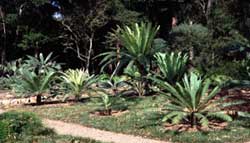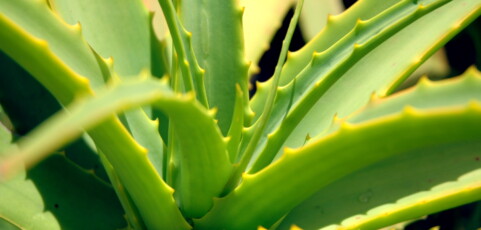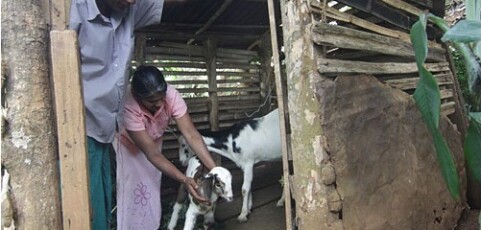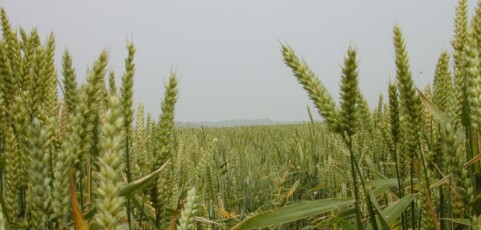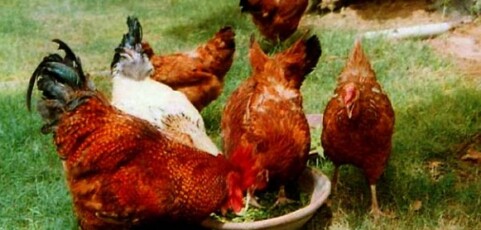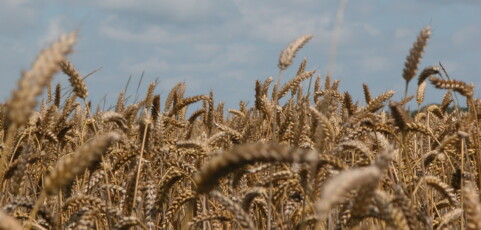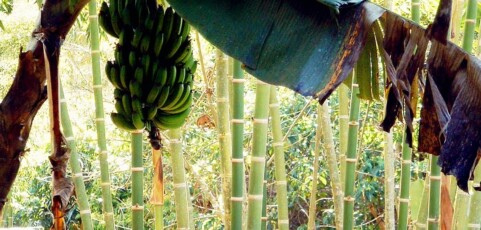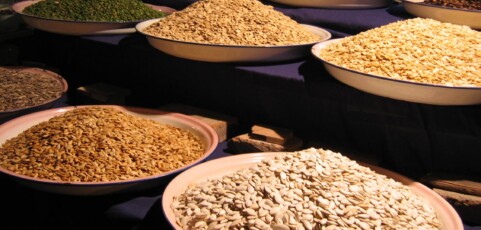Ecologically destructive practices threaten sugarcane farming in Everglades Agricultural Area. Soil subsidence and phosphorus runoff are two serious problems that the industry has begun to address, but sustainability remains a future goal rather than a reality.
Using Agroecology in a Botanical Garden, Santa Barbara, California, USA
The use of organic materials and adoption of sustainable practices allows a botanical garden to address a complex of serious disease and insect problems.
Fiber Production from Hesperaloe in Arizona, USA
Hesperaloe is a xerophytic perennial that produces high-value fibers for paper-making. It is an experimental crop with the potential for reducing water consumption and soil erosion in hot desert environments currently cropped to high-water use crops such as cotton and alfalfa.
Home garden amidst tea estate
The case of two farmers introduced to the idea of home garden, currently using their land creatively to produce a diversity of fruits and vegetables, and tea.
Beyond battery cages: a humane, sustainable model of egg production in The Netherlands
Anticipating the disappearance of battery cages, alternative, more humane and sustainable methods of egg production have been and are being devel -oped. One up-and-coming example is the Roundel, a concept in The Netherlands that became operational in 2010 and is success-fully expanding. This case study shows its social, environmental and economic benefits – and the unique partnership between business, scientists and civil society that lay the foundation to its success.
The impact of Compost use on Crop Yelds in Tigray, Ethiopia (2000-2006)
The benefits deriving from the use of compost, including restoration of soil fertility, are well illustrated in this assessement. As a result of this successful approach is that between 2003 and 2006 grain yield for the region almost doubled from 714 to 1,354 thousand tonnes.
Enhancing rural livelihoods and nutrition through higher welfare poultry production in India
This case study demonstrates that there are humane and economically viable alternatives to intensive egg production aimed at the urban market. It shows a sustainable poultry model suited to improving the livelihoods and nutrition of poor rural households that is simultaneously better for animal welfare and less reliant on buying in feed from external providers.
The Tigray experience: A success story in sustainable agriculture
The success story in Tigray is concerning the Project on Sustainable Development through Ecological Land Management by Some Rural Communities in Northern Ethiopia through a broad-based open-ended experiment by farmers and local experts able to favor the rehabilitation of the land and improved crop production. The papers also include a set of recommendations for a sustanaible agriculture.
Putting Farmers First in Sustainable Agriculture Practices
This paper describes key principles and approaches of sustainable agriculture, particularly at local community level, as a key alternative to GM crops and industrial agriculture systems. This is followed by an account of the successes of sustainable agri-culture practices in some parts of developing countries, illustrated by three case studies.
Seed Lending Libraries: Empowered Communities Take Control of their Genetic Resources
Seed libraries are places where members of the community can come and literally “check out” seeds just like one checks out a book, for free. Members can take, grow, save, and at the end of season, “return” seeds back to the library.


